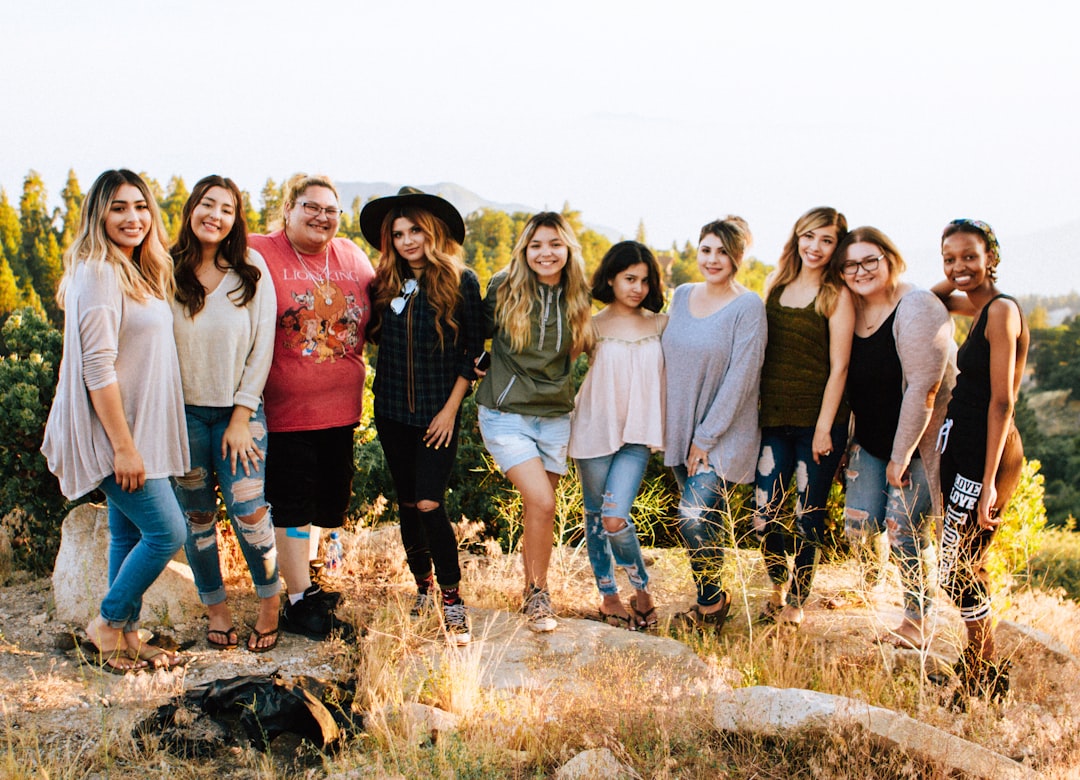The Neuroscience of Singing: Singing Makes You Happy!
Singing is medicine for the heart and soul!

The neuroscience of singing shows that when we sing our neurotransmitters connect in new and different ways. It fires up the right temporal lobe of our brain, releasing endorphins that make us smarter, healthier, happier and more creative. When we sing with other people this effect is amplified.
The science is in. Singing is really, really good for you and the most recent research suggests that group singing is the most exhilarating and transformative of all.
The good feelings we get from singing in a group are a kind of evolutionary reward for coming together cooperatively.
The research suggests that creating music together evolved as a tool of social living. Groups and tribes sang and danced together to build loyalty, transmit vital information and ward off enemies.
Singing in a group has been a part of tribal traditions for thousands of years.

Science Supports Singing
What has not been understood until recently is that singing in groups triggers the communal release of serotonin and oxytocin, the bonding hormone, and even synchronises our heart beats.
Group singing literally incentivised community over an “each cave dweller for themselves” approach. Those who sang together were strongly bonded and survived.
In her book Imperfect Harmony: Finding Happiness Singing with Others, Stacy Horn calls singing:
An infusion of the perfect tranquiliser – the kind that both soothes your nerves and elevates your spirit.
Group singing not only brings happiness but deeply connects people.

Singing Makes You Happy
For a decade, science has been hard at work trying to explain why singing has such a calming yet energising effect on people. Numerous studies demonstrate that singing releases endorphins and oxytocin – which in turn relieve anxiety and stress and which are linked to feelings of trust and bonding.
Singing helps people with depression and reduces feelings of loneliness, leaving people feeling relaxed, happy and connected. What’s more, the benefits of singing regularly are cumulative. People who sing have reduced levels of cortisol, indicating lower stress.
UK singer, singing teacher and choir leader Sophia Efthimiou describes singing as a process of consciously controlling our breath and larynx to create and sustain certain pitches and we blend that with rhythm and poetry to create songs.
In a group setting, each group member feels the musical vibrations moving through their body simultaneously. Our heart beats become synchronised. Sophia explains:
We literally form one unified heart beat.
Singing together synchronises heartbeats so that they beat as one.

Anybody Can Sing
One of the great things about singing is that you can receive the wellbeing benefits even if you aren’t any good. One study showed that:
Group singing can produce satisfying and therapeutic sensations even when the sound produced by the vocal instrument is of mediocre quality.
Tania de Jong, singer and founder of Creativity Australia, has effectively harnessed this ability of group singing to lift every member of the group up, no matter their singing ability.
The organisation’s project With One Voice puts a diversity of people together regularly to sing. The group euphoria is harnessed allowing people’s natural creativity, triggered by the group singing session, to generate new levels of community support, connection and opportunities. Tania says:
One of the great things about singing is that is connects you to the right side of your brain. This is the side responsible for intuition, imagination and all our creative functions. It connects us to a world of possibilities. In modern life we are constantly bombarded with so much information that we process and analyse. We tend to get stuck in the left, processing side of our brain. So it becomes fundamentally important to nurture the attributes of human beings that set us apart from machines. The best way to do that is singing.
If you have a voice then nothing can stop you from singing your heart out.

Sing Anywhere, Anytime
These benefits are free and accessible to all. We all have a voice. We can all sing, even if we don’t think we can.
There was a time when we all used to sing. We sang at church, around camp fires, at school. While group singing is experiencing a resurgence, not so many of us sing anymore. At some stage, someone told us to be quiet or judged our imperfect singing voice. Sophia Efthimiou suggests that singing is very personal, an expression of sound coming from within us, so we cannot help but take this criticism very personally and it sticks.
Yet, people who claim they cannot sing because they are tone deaf are more likely to be very unfamiliar with finding and using their singing voice.
Tone deafness is comparatively rare and means that you would be unable to recognise a song. If you can recognise a song you are not tone deaf, you are just unpractised. Sophia clarifies:
When our voice makes the wrong note we can feel terrible as though it is a reflection of our self worth. But – if you can talk, you can sing.
Everybody can sing so let the songs flow out wherever you are.

Raise Your Voice
US opera singer Katie Kat wishes to encourage all of us to sing far more often regardless of our perceived skill.
Singing increases self-awareness, self-confidence and our ability to communicate with others. It decreases stress, comforts us and helps us to forge our identity and influence our world.
When you sing, musical vibration moves through you, altering your physical and emotional state. Singing is as old as the hills. It is innate, ancient and within all of us. It really is one of the most uplifting therapeutic things we can do. Katie continues:
However, society has skewed views on the value of singing. Singing has become something reserved for elite talent or highly produced stars with producers, management, concert dates – leaving the rest of us with destructive criticism of our own voices.
She claims that singing is instinctual and necessary to our existence. You do not have to be an amazing singer to benefit from the basic biological benefits and with practice the benefits increase.
Singing in a group brings joy to people of every age.

Singing Creates Connection
I have fond memories of hearing my grandmother singing throughout the day and of large group singing sessions with her friends.
One of my favourite memories of group singing is the old Scots tradition on New Year’s Eve of singing Auld Lang Syne. My grandmother and all her friends would stand in a big circle just before midnight.
Everyone would hold hands, and then at the beginning of the final verse we would cross our arms across our bodies so that our left hand was holding the hand of the person on our right, and the right hand holds that of the person on the left. When the song ended, everyone would rush to the middle, still holding hands. It was beautiful fun and as a young girl I felt so safe, included and loved within that singing circle.
The phrase “auld lang syne” roughly translates as “for old times’ sake”, and the song is all about preserving old friendships and looking back over the events of the year.
A tradition worth resurrecting, considering the benefits of singing in a group.
Read next: Angelic Numerology Explained
>
Article Source: originally written by Cassandra Sheppard on Sunday December 11th, 2016 - published on upliftconnect - original title The Neuroscience Of Singing
Please Note: this article has been re-posted without prior written consent by the original Author. However, we were granted permission by Upliftconnect to re-post this article. Link to the original article and Author can be found above this disclaimer. If you are the Author of this post and you think that we are not re-posting it under the realm of 'fair-use', please contact us earthangelshouse@gmail.com
